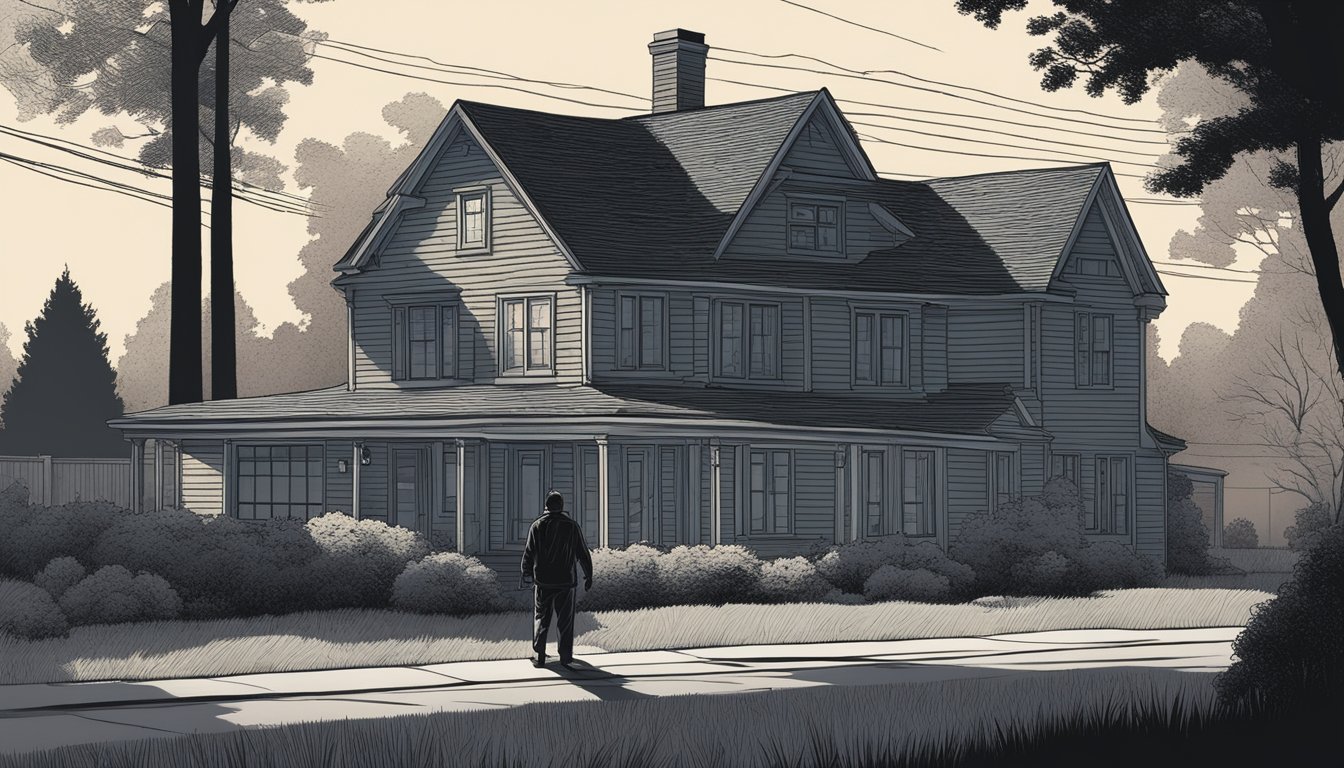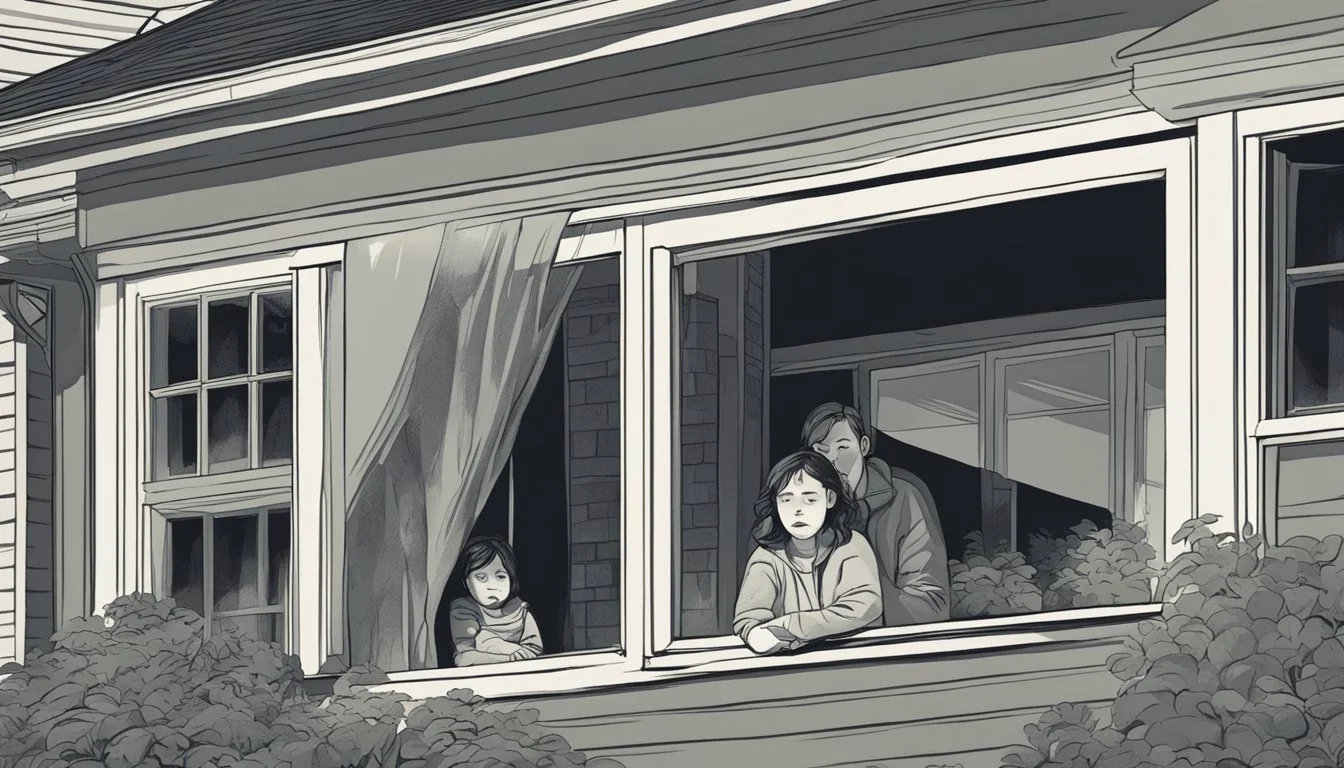Coral Eugene Watts: 5 Chilling Films About the Sunday Morning Slasher
Exploring True Crime Cinema
Coral Eugene Watts, known as the "Sunday Morning Slasher," left a trail of terror across multiple states in the 1970s and early 1980s. His crimes shocked communities and baffled law enforcement for years. Watts is suspected of being one of the most prolific serial killers in U.S. history, with potentially over 80 victims.
Several films have attempted to capture the chilling story of Watts and his heinous acts. These productions aim to shed light on the killer's background, motives, and the investigation that ultimately led to his capture. From documentaries to dramatized retellings, filmmakers have explored various aspects of the Sunday Morning Slasher case.
1) "The Deliberate Stranger" - Movie (1986)
"The Deliberate Stranger" is a television miniseries that aired in 1986. It depicts the crimes of serial killer Ted Bundy, not Coral Eugene Watts.
Mark Harmon stars as Bundy in this adaptation of Richard W. Larsen's book. The film follows Bundy's killing spree across multiple states in the 1970s.
Directed by Marvin J. Chomsky, the miniseries portrays Bundy's charm and intelligence alongside his brutal murders. It shows how he evaded capture for years while continuing to claim victims.
The movie covers Bundy's time as a law student in Utah and his eventual capture. It highlights the challenges law enforcement faced in connecting the murders across different jurisdictions.
"The Deliberate Stranger" received positive reviews for Harmon's performance as the charismatic yet disturbing Bundy. The film provides a chilling look at one of America's most notorious serial killers.
https://www.imdb.com/title/tt0090925/
2) "Ted Bundy: Mind of a Monster" - Documentary (2019)
This documentary provides a chilling look into the psyche of one of America's most infamous serial killers. Through exclusive access and previously unheard testimony, it offers unique insights into Ted Bundy's twisted mind.
The film features breathtaking archival footage from Bundy's era, bringing viewers back to the time of his heinous crimes. It also includes Bundy's own voice, allowing audiences to hear the monster's thoughts firsthand.
Experts and investigators share their perspectives on Bundy's case, shedding light on his methods and motivations. The documentary explores how this charismatic and seemingly normal man harbored such dark impulses.
"Mind of a Monster" delves into Bundy's childhood, relationships, and criminal activities. It examines the factors that may have contributed to his evolution into a serial killer.
This 85-minute film presents a comprehensive portrait of Bundy, from his early life to his eventual capture and execution. It serves as a stark reminder of the evil that can lurk behind a charming facade.
https://www.imdb.com/title/tt10951432/
3) "Zodiac" - Movie (2007)
"Zodiac" is a gripping crime thriller directed by David Fincher. The film stars Jake Gyllenhaal, Mark Ruffalo, and Robert Downey Jr. in lead roles.
Set in the San Francisco Bay Area, "Zodiac" chronicles the hunt for the infamous Zodiac Killer. The movie focuses on the investigation spanning several years and the obsessive pursuit of the elusive serial killer.
The film meticulously recreates the atmosphere of the late 1960s and 1970s. It portrays the frustration and dedication of the investigators and journalists involved in the case.
"Zodiac" is known for its attention to detail and historical accuracy. It builds tension through its deliberate pacing and unsettling mood rather than relying on graphic violence.
The movie explores the psychological toll the investigation takes on the main characters. It delves into themes of obsession, the nature of evil, and the impact of unsolved crimes on society.
"Zodiac" received critical acclaim for its direction, performances, and cinematography. It is considered one of Fincher's best works and a standout in the true crime genre.
https://www.imdb.com/title/tt0443706/
4) "The Fall of a Serial Killer" - Documentary (2021)
"The Fall of a Serial Killer" offers a comprehensive look at Coral Eugene Watts' final years and eventual demise. This documentary explores the events leading to his capture and conviction.
The film features interviews with law enforcement officials, prosecutors, and survivors. It provides insight into the strategies used to build a case against Watts and secure his life sentence.
Archival footage and reenactments bring key moments to life, including Watts' 2004 trial in Michigan. The documentary also examines the impact of DNA evidence in linking Watts to additional murders.
"The Fall of a Serial Killer" delves into Watts' prison life and his deteriorating health. It concludes with his death from prostate cancer in 2007, marking the end of his reign of terror.
The documentary serves as a cautionary tale about the importance of thorough investigations and the persistence required to bring serial killers to justice.
https://www.imdb.com/title/tt15431346/
5) "I am a Killer" - Docuseries (2018)
"I am a Killer" is a Netflix documentary series that features interviews with death row inmates convicted of murder. The show premiered in 2018 and has since released multiple seasons.
Each episode focuses on a different inmate, allowing them to share their perspective on the crimes they committed. The series provides insight into the minds of convicted killers and explores the circumstances surrounding their actions.
While Coral Eugene Watts is not specifically featured, "I am a Killer" offers a similar examination of convicted murderers. The show includes interviews with inmates, victims' families, and law enforcement officials.
The series presents a balanced view of each case, allowing viewers to form their own opinions about the crimes and the justice system. It raises questions about guilt, punishment, and rehabilitation.
"I am a Killer" has gained popularity for its unfiltered approach to true crime storytelling. The show's format provides a unique perspective on capital punishment and the criminal justice system in the United States.
https://www.imdb.com/title/tt8522732/
Background of Coral Eugene Watts
Carl Eugene Watts, known as "Coral" and "The Sunday Morning Slasher," was one of America's most prolific serial killers. His troubled childhood, violent criminal activities, and eventual capture shed light on the making of a notorious murderer.
Early Life and Personality
Born on November 7, 1953, in Killeen, Texas, Watts had a difficult upbringing. He contracted meningitis at 18 months old, which affected his development. As a child, he struggled with learning disabilities and was frequently bullied.
Watts exhibited disturbing behavior from an early age. He tortured and killed animals, a common trait among future serial killers. His social interactions were limited, and he struggled to form meaningful relationships.
By his teenage years, Watts had developed a deep-seated hatred towards women. This misogyny would later fuel his violent crimes.
Criminal Activities
Watts began his killing spree in 1974, targeting young women and girls. His modus operandi involved stalking victims before attacking them on Sunday mornings, earning him the moniker "The Sunday Morning Slasher."
He primarily operated in Michigan and Texas, claiming victims through strangulation, stabbing, or drowning. Watts was meticulous in covering his tracks, leaving little evidence behind.
Law enforcement suspected him of killing over 100 women, though the exact number remains unknown. His victims ranged from teenagers to women in their thirties.
Capture and Conviction
Watts' reign of terror ended on May 23, 1982, when he was caught attempting to drown two women in Houston, Texas. During questioning, he made shocking claims about his numerous murders.
In a controversial plea bargain, Watts confessed to 12 murders in exchange for immunity from prosecution in Texas. He was sentenced to 60 years for burglary with intent to murder.
Later, Michigan authorities successfully prosecuted Watts for two murders. He received two life sentences without parole. Watts died of prostate cancer in 2007 while incarcerated, leaving many questions unanswered about his horrific crimes.
Psychological Profile
Coral Eugene Watts exhibited distinct psychological traits and behavioral patterns that drove his violent actions. His motivations and triggers stemmed from deep-seated issues, while his methods of operation revealed a chilling consistency.
Motivations and Triggers
Watts claimed he targeted women with "evil eyes," indicating a distorted perception of reality. This belief likely stemmed from his childhood experiences and sleep-induced visions. Experts suggest Watts may have suffered from paranoid schizophrenia or another severe mental disorder.
His attacks often occurred on Sunday mornings, earning him the moniker "Sunday Morning Slasher." This timing could have held symbolic significance for Watts, possibly related to religious or personal experiences.
Watts reportedly felt a strong urge to kill, describing it as an overwhelming compulsion he couldn't control. This impulse typically peaked when he encountered potential victims alone.
Behavioral Patterns
Watts displayed a preference for strangling, stabbing, and drowning his victims. He rarely used firearms, favoring more intimate methods of killing. This pattern suggests a desire for close contact and control over his victims.
His victim selection process was seemingly random, though he primarily targeted young women. Watts often gained entry to homes through ruses or by forcing his way in during early morning hours.
Interestingly, Watts rarely sexually assaulted his victims, setting him apart from many serial killers. His focus appeared to be solely on the act of killing itself.
Watts exhibited extreme violence during his attacks but was described as calm and composed in his daily life. This stark contrast in behavior puzzled investigators and psychologists alike.







